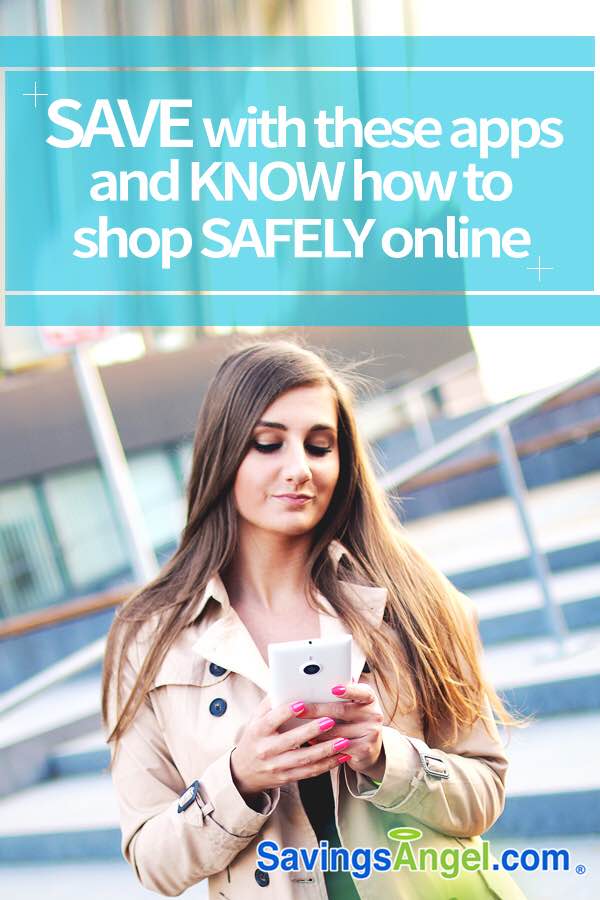 Save with these apps and know how to shop safely online
Save with these apps and know how to shop safely online
With the holiday shopping season already underway, there are a number of shopping apps I highly recommend for saving more money, saving time, and getting more than ever before out of the shopping you’re already doing – all while staying safe online.
Apps I recommend:
(1) Swagbucks – While you’re researching prices for holiday purchases, be sure to go through Swagbucks. It’s free, and you earn points just for using their search. After you have accumulated points, you redeem them for cash and gift cards. You can boost your points quickly by taking easy surveys, watching videos, and playing fun games. When was the last time you were paid to do any of those things? Not only that, but you can earn cash back by shopping through Swagbucks! Simply click through their site before buying anything online.
Every point you earn at Swagbucks is like 1% cash back, as you save toward gift cards or a cash payout. You can redeem points yourself, or donate your points to a number of charities, then they would get the cash payout from Swagbucks. Sign up at savingsangel.com/swagbucks.
(2) Retailmenot.com – As you shop, don’t buy anything without first searching for a coupon code at Retailmenot. They have the largest depository of coupons and coupon codes, and even maintain specialty sections to easily find offers like free shipping and senior discounts. Get their mobile app for when you’re already out shopping.
Not only do they have coupons, Retailmenot curates leaked Black Friday ads and Cyber Monday information.
(3) Individual store apps – Get alerted to special deals and savings by getting the apps for your favorite retailers. Some stores that have them: Aeropostale, Amazon, American Eagle, Bed, Bath & Beyond, Best Buy, Children’s Place, CVS, Hobby Lobby, Home Depot, JCPenney, Kohl’s, Meijer, Old Navy, Sam’s Club, Sears, Target, Toys R Us, Walgreens, and Walmart.
(4) PriceGrabber.com and Shopping.com to compare prices online and find the best deal. These deals compare prices from across the web to point you to the lowest ones.
(5) SnipSnap.it to make sure you never forget to use your coupons while in store. This app stores your coupons and will remind you to use them.
Online shopping safety:
(1) Update your security software, your browser, and your operating system. Failure to do so is like leaving your front door open, with your wallet and keys in plain sight. After updating, run a full security scan.
(2) Before downloading or using any shopping app, read the permissions it requests and reviews from users. It’s important you feel comfortable with the permissions – and that there are not numerous bad reviews.
(3) Before buying on any site, be sure you are on to the genuine site. Check the URL in the address bar and open the details about the site using the little letter “i”, surrounded by a circle, right by the site name in the URL title bar at the top.
(4) Before completing any online purchase, check that the site is secure. You should see an “s” in the HTTP portion of the address of the site, up in the title bar. You should also see a “lock icon” displayed, indicating that they have an extra layer of security. If you don’t see the extra security indicators at first, it doesn’t necessary mean it’s unsafe. Often that extra security does not kick in and display until you’ve moved to the cart or checkout page to complete a purchase. So look there.
(5) Use alternative payment methods, instead of your bank card directly. Some retailers take PayPal, or you can purchase pre-paid money cards or gift cards so you are not using your bank card over and over online.
(6) Complete purchases as a “guest”. Many retailers offer the option to save all your information in a personal profile, with the hook that it makes things faster in the future. But unless you plan to shop the retailer often, it’s unnecessary, and only puts your information in another database. Purchases are stored under your order number, and you’ll receive confirmation, without a personal profile.
(7) Virus or compromised site notifications. If you receive a notification – not from your security software that you’ve got a virus or that your computer is compromised, don’t open any links or call any provided phone number for “help”. Those messages mean that your browser has been compromised, but not necessarily your computer. Scams like this are plentiful during the holiday shopping season. Clicking a link or calling a number for remote “help” will actually infect your computer.


